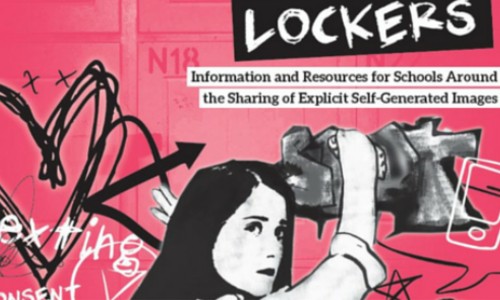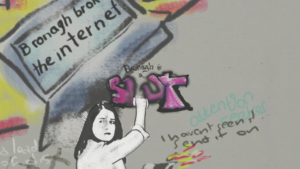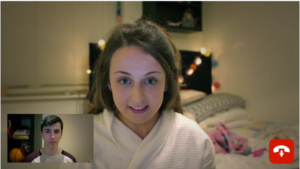Image-based sexual abuse – free resources
What is image-based sexual abuse?
Image-based sexual abuse, sometimes referred to as ‘Revenge Porn’, is the distributing of an intimate image of someone without their permission. When intimate images are shared online without permission, it can have serious consequences.
Education and awareness can play an important role when it comes to image-sharing and consent online. Webwise provide free education resources, support and advice developed to assist schools, parents and teens when exploring the topic of non-consensual sharing of intimate images.
These resources encourage students to act responsibly when they encounter intimate content online or when considering sending an intimate image, and also provide support and advice if they find themselves in a situation where their images have been shared without their permission.
Free Teaching Resources
Introduce students to the concept of respect and consent online using the Lockers resource.
Lockers is an information and education resource, it assists schools in coping with and preventing the sharing of explicit self-generated images of minors. Intended for use with Junior Cycle SPHE classes, Lockers is supported by two animations and six lesson plans.
Lessons cover:
- The law on sharing intimate content
- When sharing online goes wrong
- Victim blaming
- Peer pressure and non-consensual sharing
- The influence of media and gender stereotypes
- Getting help
Also included in Lockers is an information section for school leaders. This 25-page section informs principals on the context for sexting among young people, the laws that can come into effect when underage sexting occurs and the implications for school policy.

Advice for Teens
Forever Campaign
The Forever campaign features a short film aimed at teens to highlight the potential consequences of sharing intimate images.
It encourages awareness that sharing nudes could cause real harm by hurting or embarrassing others, can damage reputations and change lives forever, and can also be a criminal offence.
The campaign supported by advice and information for young people about the topic.
Sexting - Get the Facts
Did you know that sexting involving people under 18 is illegal?
Get all the facts. Here are 6 things you need to know about sexting.

What to do if an image is shared without your permission.
Sharing nude images online without permission can have serious consequences.
If you find yourself in a situation where nude photos have been shared without your permission, there are a number of steps you can take.

Advice for Parents
Sexting – what parents need to know
Elaine Byrnes, Doctoral Researcher-Psychology, NUI Galway explains why teens may get involved in sexting and offers advice on how parents can talk to their teen about image-sharing.
What to do if images of my child are shared online
Elaine Byrnes, Doctoral Researcher-Psychology, NUI Galway offers advice to parents on what to to do if intimate images of their child are shared online.
Talking to your teen about online safety
Elaine Byrnes, Doctoral Researcher-Psychology, NUI Galway offers advice for parents on talking to your teen about online safety.
Talking Points: Sexting
For many parents of teens, sexting can be a big concern. Talking to your child can be the best way to ease concerns.
We have put together a list of useful talking points to help start the conversation with your child.

What does the law say?
In February 2021, the Harassment, Harmful Communications and Related Offences Act 2020 was commenced, also known as Coco’s Law.
Coco’s Law creates two new offences which criminalise the non-consensual distribution of intimate images:
- It is an offence to distribute or publish intimate images of a person, without consent and with intent to cause harm. Penalties include an unlimited fine and/or 7 years imprisonment.
- It is an offence to take, distribute or publish intimate images of a person without consent even if there is no specific intent to cause harm. Penalties include a maximum fine of €5,000 and/or 12 months’ imprisonment.
Importantly, this applies even if the person initially gave consent for the picture to be taken, but they were later shared with other people without their consent.
The sharing of explicit images of minors is captured by the Child Trafficking and Pornography Act 1998. If you are under 18 and a nude image of you has been shared online, it is illegal and you should report it with the Gardaí.
If an intimate image or video of you has been shared without your consent it is a crime and you can report it to Hotline.ie.
Hotline.ie can help with reporting and removing the content online and, in some cases, liaising with An Garda Síochána, should you wish for it to be investigated by the Gardaí.





